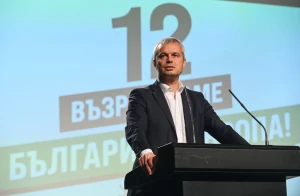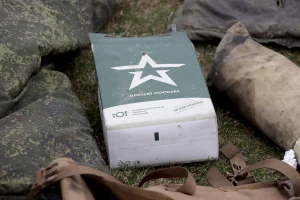
There is no "fatigue from Ukraine"
Americans and Poles continue to show their support for Ukraine. I examined public opinion surveys in these countries for my article.
There are no signs of "fatigue from Ukraine" among the people. Recent opinion polls in the USA and Poland, which are crucial countries for our assistance, confirm this.
The United States supplies us with essential weapons and offers significant financial aid. They are the main driving force behind the international coalition supporting Ukraine. Poland, on the other hand, has welcomed millions of Ukrainian refugees and provided us with substantial military, humanitarian, and financial support. They have become an important logistical hub for our country, supporting both our front and rear lines.
According to a June Reuters/Ipsos poll, 56% of Americans support providing arms to Ukraine. What's particularly important is that this percentage has remained unchanged since February. Among Democratic Party voters, 76% are in favor of arming Ukraine, while among Republicans, the figure is 44%.
The support for Ukraine remains strong and unaffected by the passage of time, the negative campaigns of American bloggers, or internal issues within the United States. The support from both houses of Congress for Ukraine is secure and currently faces no threats.
It is concerning that the level of support among Republicans is relatively low. However, this is not due to "fatigue from Ukraine" or Donald Trump's pro-Russian sympathies. It mainly stems from the majority of Republicans opposing President Joe Biden's policies. It seems that their stance is based on a principle of opposing anything Biden does.
A survey conducted by the Polish Centre for Public Opinion Research (CBOS) in May revealed that 74% of respondents believe that the war in Ukraine directly impacts Poland's security. It is particularly noteworthy that 72% of respondents support accepting Ukrainian refugees from the conflict-affected areas.
The majority of Poles understand the meaningfulness behind the slogan "For your and our freedom" and recognize its tragic significance.
On June 6, Polish farmers resumed their blockade of transportation carrying Ukrainian agricultural products at the crossing in the Lviv region. Despite the European Commission extending the ban on importing wheat, corn, rapeseed, and sunflower to EU countries (including Poland, Slovakia, Romania, Hungary, and Bulgaria) until mid-September.
According to the survey mentioned, 45% of Poles supported this decision, while only 15% opposed it. When asked about the cancellation of customs duties on Ukrainian product exports to the EU after February 24, 2022, 42% of respondents believed it was a mistake, while 34% considered it the right decision. It is not surprising that residents of rural areas primarily belong to the first group, while residents of larger cities are more represented in the second group.
Unfortunately, the strategy of intimidating Poles with the "massive importation" of Ukrainian agricultural products has had an effect. It has seemingly caused problems in the Polish agricultural sector, such as decreased grain prices and surplus unsold grain in warehouses. However, the reality is quite different: Ukrainian products did not have a significant impact on the economy of our western neighbors.
But there is a small positive aspect in this negative situation. When asked who is responsible for the crisis caused by the uncontrolled importation of Ukrainian grain, 45% of respondents blamed the Polish government, 20% blamed grain trading companies, 16% blamed the EU, and only 2% believed Ukraine was at fault.
The conclusion is that a considerable number of Poles believe that the importation of Ukrainian agricultural products caused problems in their economy. They consider it a mistake to remove import duties and support the ban on certain agricultural imports from Ukraine. However, they hold their own government and large companies accountable for the crisis, not Ukraine. Our western neighbors understand that a country that also defends their security cannot be automatically blamed for domestic problems.
Therefore, it is crucial for our authorities, diplomats, and public speakers in Poland and other European countries to provide accurate information about Ukrainian product exports, debunk false information, and counter pro-Russian propaganda.
Furthermore, it is important to explain that the destruction of the Kakhovka HPP dam aims to harm Ukrainian agriculture, raise global agricultural prices, and potentially cause famine in Africa and Middle Eastern countries.
- News













































